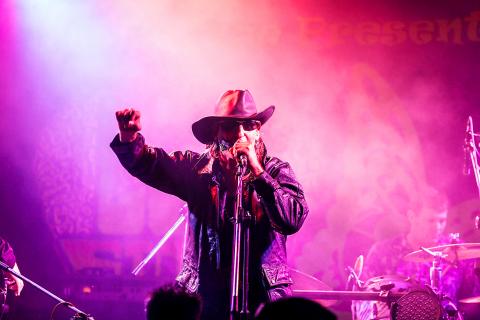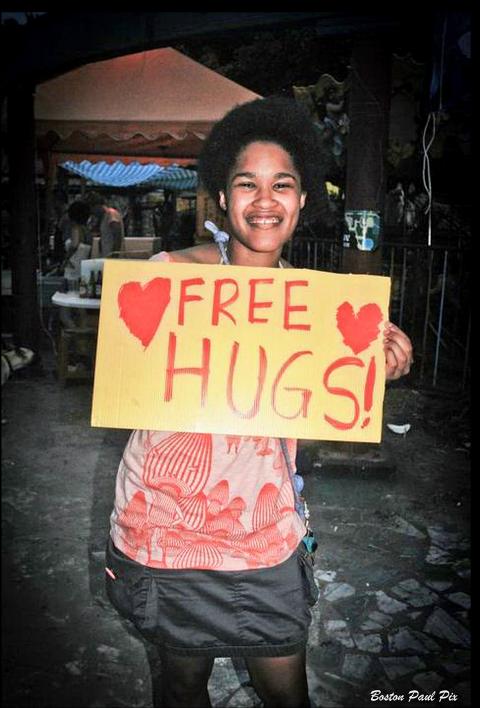Consider it Woodstock’s younger cousin.
It’s LUVstock, a tempered version of the infamous musical festival that rocked Upstate New York nearly a half century ago.
Billed as two days of peace, love, art and music, LUVstock is set to take place this weekend on farmland in rural Taichung.

Photo courtesy of Goldfish Studios
“It’s a nice little party in the mountains,” said event organizer Paul Davies, a mainstay on the Taichung music scene.
Ranging from rock to hip hop, the musical lineup will feature more than 20 bands and four DJs performing on two stages. Taichung-based bands will include Annie & Taco, The ShapeMaster and Gypsi Gypsi. Among the Taipei and Kaohsiung bands will be the Combobulators, Ghost Money All Stars and the Fumarolles.
Live music kicks off Saturday afternoon and runs throughout the evening. DJs take over in the early morning hours, with live music resuming Sunday afternoon.

Photo courtesy of Paul Davies
The event, which has fluctuated in size and location throughout the years, started as a birthday party for Davies 18 years ago. From its humble origins, it’s grown into a full-blown festival that attracts several hundred music fans annually.
Davies said he is proud that it’s once again being held without corporate sponsorship.
“We don’t want to commercialize it,” Davies said. “We want the focus on the music and the people.”
Aside from the music, temporary henna tattoos and face painting will be available.

One of the most important gripes that Taiwanese have about the Democratic Progressive Party (DPP) is that it has failed to deliver concretely on higher wages, housing prices and other bread-and-butter issues. The parallel complaint is that the DPP cares only about glamor issues, such as removing markers of Chinese Nationalist Party (KMT) colonialism by renaming them, or what the KMT codes as “de-Sinification.” Once again, as a critical election looms, the DPP is presenting evidence for that charge. The KMT was quick to jump on the recent proposal of the Ministry of the Interior (MOI) to rename roads that symbolize

On the evening of June 1, Control Yuan Secretary-General Lee Chun-yi (李俊俋) apologized and resigned in disgrace. His crime was instructing his driver to use a Control Yuan vehicle to transport his dog to a pet grooming salon. The Control Yuan is the government branch that investigates, audits and impeaches government officials for, among other things, misuse of government funds, so his misuse of a government vehicle was highly inappropriate. If this story were told to anyone living in the golden era of swaggering gangsters, flashy nouveau riche businessmen, and corrupt “black gold” politics of the 1980s and 1990s, they would have laughed.

It was just before 6am on a sunny November morning and I could hardly contain my excitement as I arrived at the wharf where I would catch the boat to one of Penghu’s most difficult-to-access islands, a trip that had been on my list for nearly a decade. Little did I know, my dream would soon be crushed. Unsure about which boat was heading to Huayu (花嶼), I found someone who appeared to be a local and asked if this was the right place to wait. “Oh, the boat to Huayu’s been canceled today,” she told me. I couldn’t believe my ears. Surely,

When Lisa, 20, laces into her ultra-high heels for her shift at a strip club in Ukraine’s Kharkiv, she knows that aside from dancing, she will have to comfort traumatized soldiers. Since Russia’s 2022 invasion, exhausted troops are the main clientele of the Flash Dancers club in the center of the northeastern city, just 20 kilometers from Russian forces. For some customers, it provides an “escape” from the war, said Valerya Zavatska — a 25-year-old law graduate who runs the club with her mother, an ex-dancer. But many are not there just for the show. They “want to talk about what hurts,” she